There’s a disturbing trend in fiction today, particularly genre fiction published by smaller, niche presses.
Is it the prevalence of objectionable content? The normalization of the unacceptable? The crossing of taboo lines?
No. That has pretty much been happening since the dawn of literature. I guarantee you, the first time a cavewoman took a piece of char from the firepit and etched a story on a stone wall, another cavewoman clutched her animal-tooth necklace, gasped in dismay, and grunted something that would have vaguely translated to, “you can’t write that!”
No, this disturbing trend is far more insidious. It’s the infantilization of the reader.
The riff goes something like this: “Oooh, that content is objectionable! It might upset someone! We better warn people away! Quick, tag it! Oh, how dare that author not include warnings! What a terrible, insensitive person! I bet they wrote it because <insert ignorant and uninformed assumption of authorial motive>.”
Sometimes the content truly is objectionable. Like rape, extreme violence, sexual content including underaged characters, etc. And sometimes the content that gets the Content Police up in arms is as absurdly benign as lacking a nice, pat happily-ever-after ending.
Of course, the people usually howling to the moon about this usually aren’t the fragile flowers who would be disturbed by the content themselves. No, they’re a self-appointed, and moveover, self-important posse of content police dedicated to making reading safe for all.
Newsflash, sweethearts. Reading ain’t safe. It never has been, it was never meant to be, and that cavewoman with the char on her fingers knew it. It’s supposed to shake you up, to make you think, to push boundaries. In other words, to open up the world for the proliferation of IDEAS.
The problem here is that the content police have huge-ass savior complexes. They need to feel important, need to feel needed, need to feel they’re making a difference, and in order to do that, yes, they villify authors whom they feel transgress, but that is the least of the problems with this new system.
Where they truly, truly fuck up is in their utter, unmitigated condescension toward their fellow READERS. You know, the readers, the delicate, fragile, easily-bruised flowers who might be alarmed by encountering something that has been nebulously dubbed “objectionable” for reasons which are largely arbitrary and prone to change with the social and political climate.
As an author, I shrug these people off. They’re an annoyance. Misguided, yes, but nowhere near important enough to get steamed over or significant enough to engage with, thus making them in their own minds the long-suffering victims and martyrs they style themselves as.
But as a person who is also a reader? They infuriate me. It’s belittling and degrading to me, as a reader. How dare they assume that I, or any other person intelligent, educated, and motivated enough to pick up a book and read, need to be protected from anything, for any reason, much less protected by them? How dare they try to paint me a hapless and passive victim of the media I seek out? How dare they assume the authority to know what is objectionable and what isn’t, to designate some literature safe and other literature as something people need to be warned away from?
Talk about ego! I mean, woah! The sheer chutzpah is absolutely breathtaking. I mean, really, take a moment in the privacy of your own mind to imagine what sort of unbelievable vanity it takes for a person to assume they have the right, the moral authority, and the cultural license to do that.
No, apparently, not only are authors getting flack for not warning about content in their own books, they’re getting raked over the coals by the Content Police for recommending books that have what the Content Police consider to be objectionable content. So now the Content Police aren’t just going after ideas, they’re going after those who read, enjoy, and share those ideas with others.
Ridiculous.
Here’s where I stand on warnings (on and within books themselves, in other words, content labels): Unless and until I sign on with a press that includes content warnings in their books-which I almost certainly will never do-you will never see content warnings in my books. I may put them on a website listing or in a post, for those who actually care about such issues enough to do some research before they buy, but not in the book itself. Why?
Because “content warnings?” (again, within and on books themselves; aka labels). Are the mark of amateur publishers. Whenever I see a press that includes them, I automatically lower my expectations of the quality of the content I will find coming out of that press, because I know they are not approaching their craft as a professional publisher would. Content warnings are a standard that was born in fanfic circles that fanfic readers have carried with them and expect to see applied in professional publishing.
I’m not am amateur. I will not apply amateur standards to my books. It’s really that simple.
Did Stephen King’s publishers warn for domestic violence, extreme violence, child abuse, extremely underaged sex, attempted rape and attempted molestation in IT?
No.
Did V.C. Andrews warn for abuse, rape, incest, and underaged sex in Flowers in the Attic?
No.
Anne Rice?
No.
Why should I hold myself to a different standard from any other professional author? Because I’m not as well known? Because I don’t have their sales figures? Fuck that. I’m a professional author and I will handle my books as a professional author would.
But those are publications from a different time and political climate! you wail, wringing your hands anxiously at the notion that maybe readers don’t need to be warned away from iffy material. Need something less old-school?
Jacqueline Carey infused her Kushiel books with not only consensual BDSM, but also non-consensual situations that were extremely disturbing. Were there content warnings on those books? No.
Laurell K. Hamilton. Content warnings? No.
Do I need to go on? Because I could. I could list hundreds of authors present and past who write “objectionable” content and don’t warn about it in the book or on the Amazon product page or anywhere else.
The Big 5 publishers don’t warn for content, and if we, the self-publishers and smaller niche presses, want to be regarded as being just as professional, and producing content which is just as high-quality, we need to not start off from the get-go handling our product as if we were amateurs.
But more importantly? I would never, ever dare insult my readers by assuming they are fragile or incompetent enough to need to be protected from words and ideas. I may have the ego to consider myself professional enough to play in the big leagues, but I don’t have the ego to do that.
And those who do need to get over themselves.
(P.S. Unless you’re quoting me from an interview or have spoken to me personally, anything you say which starts off as “the author clearly wanted <whatever>” is almost certain to be wrong. You want to know my motives for writing what I write? Ask me.)

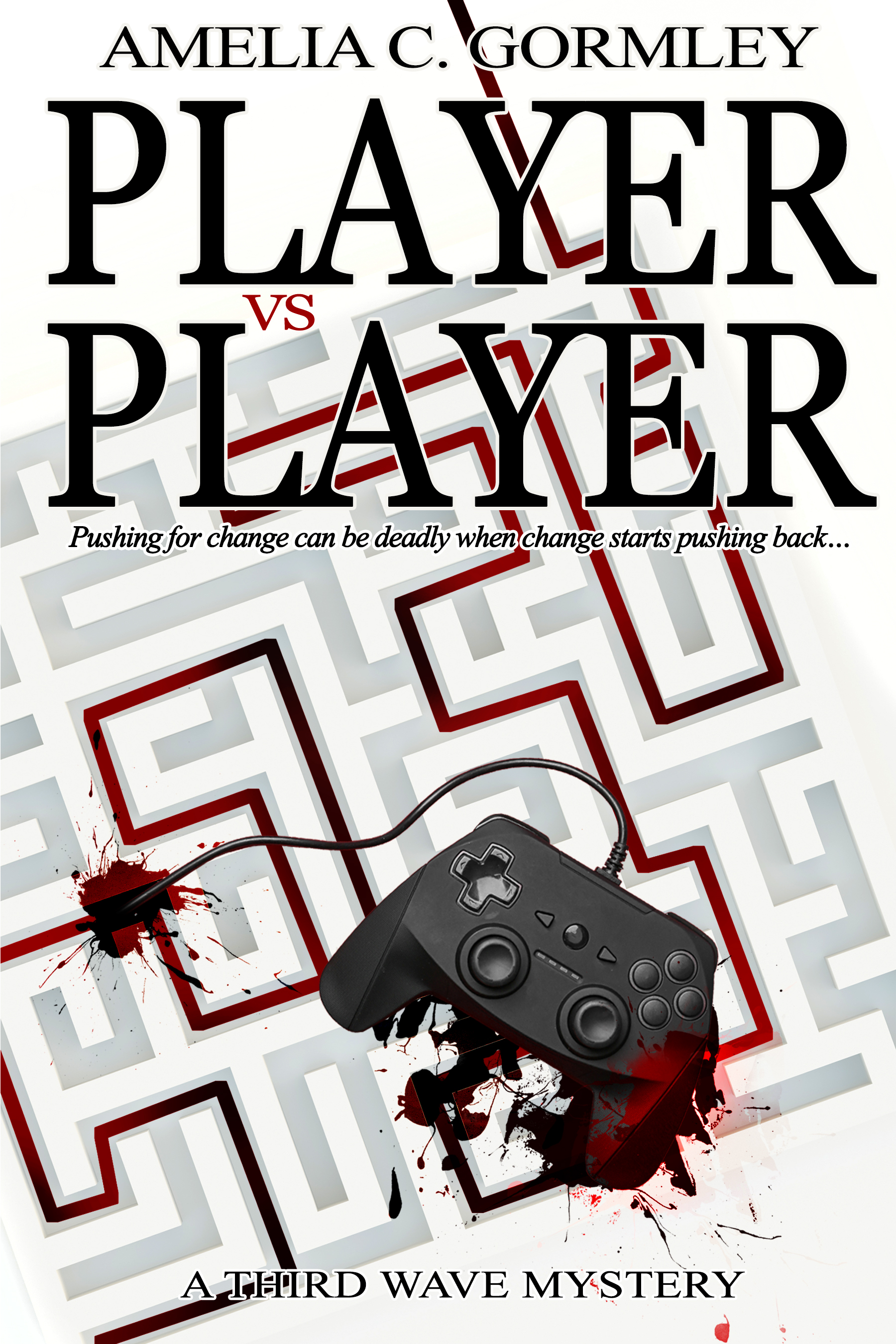
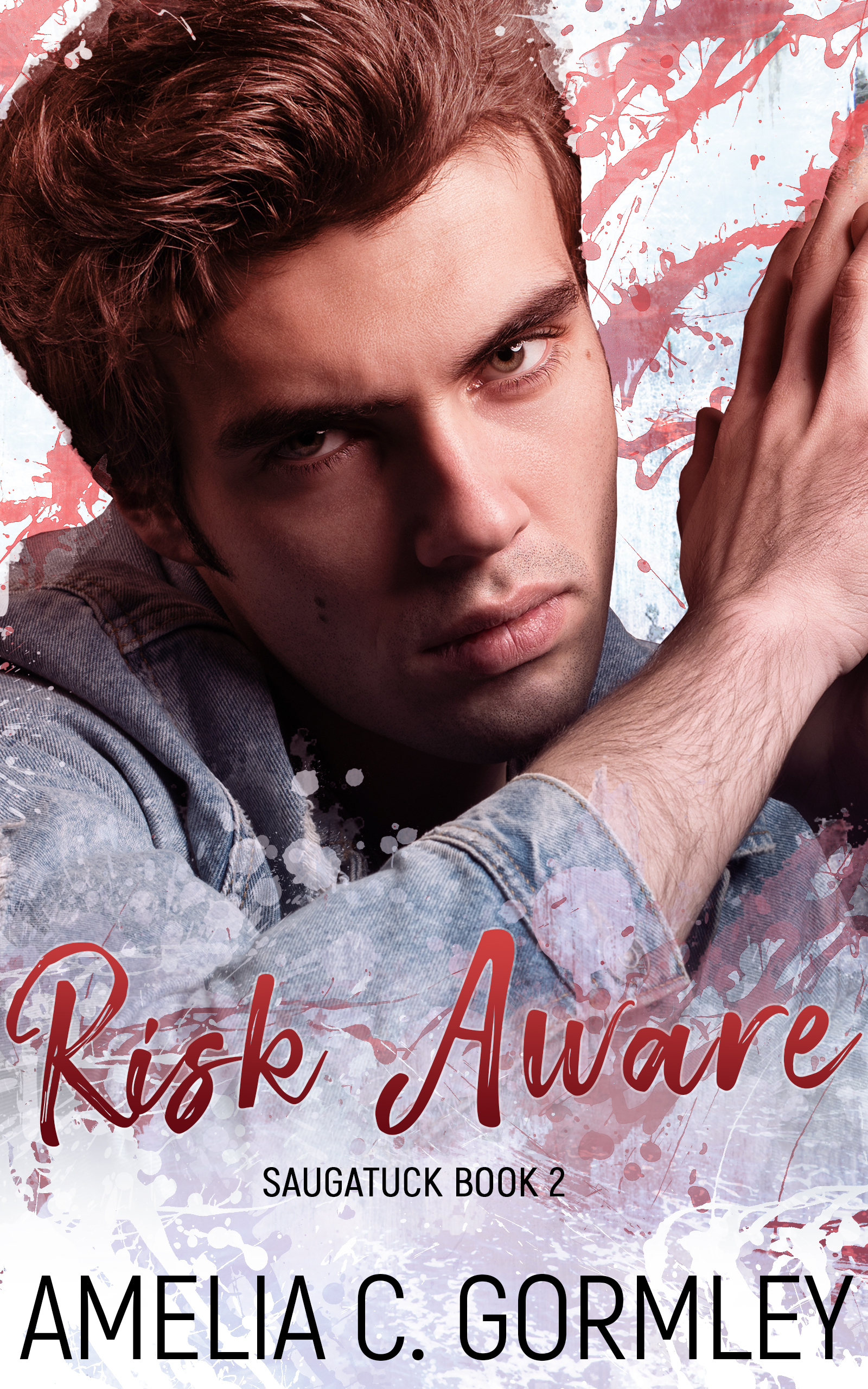
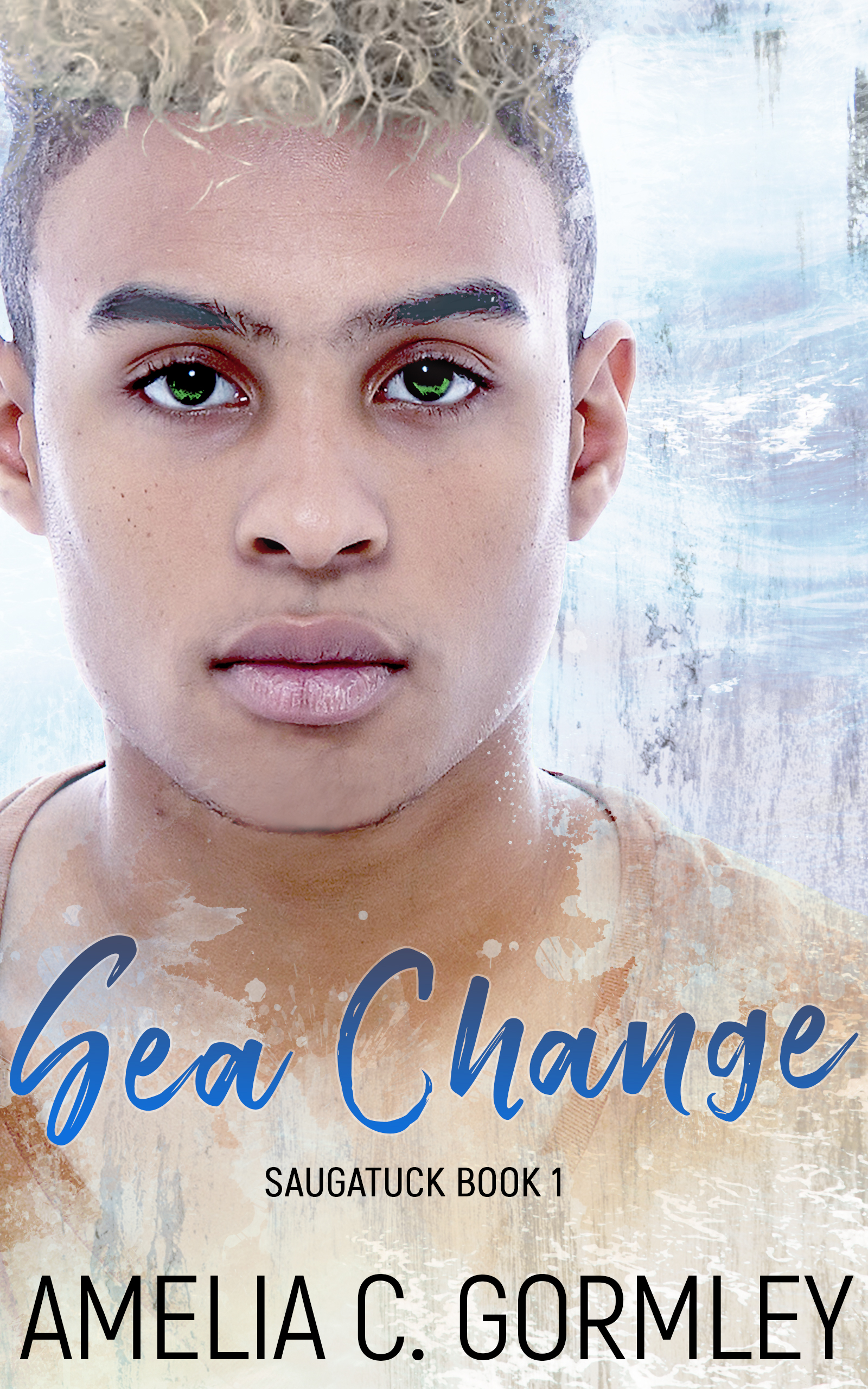
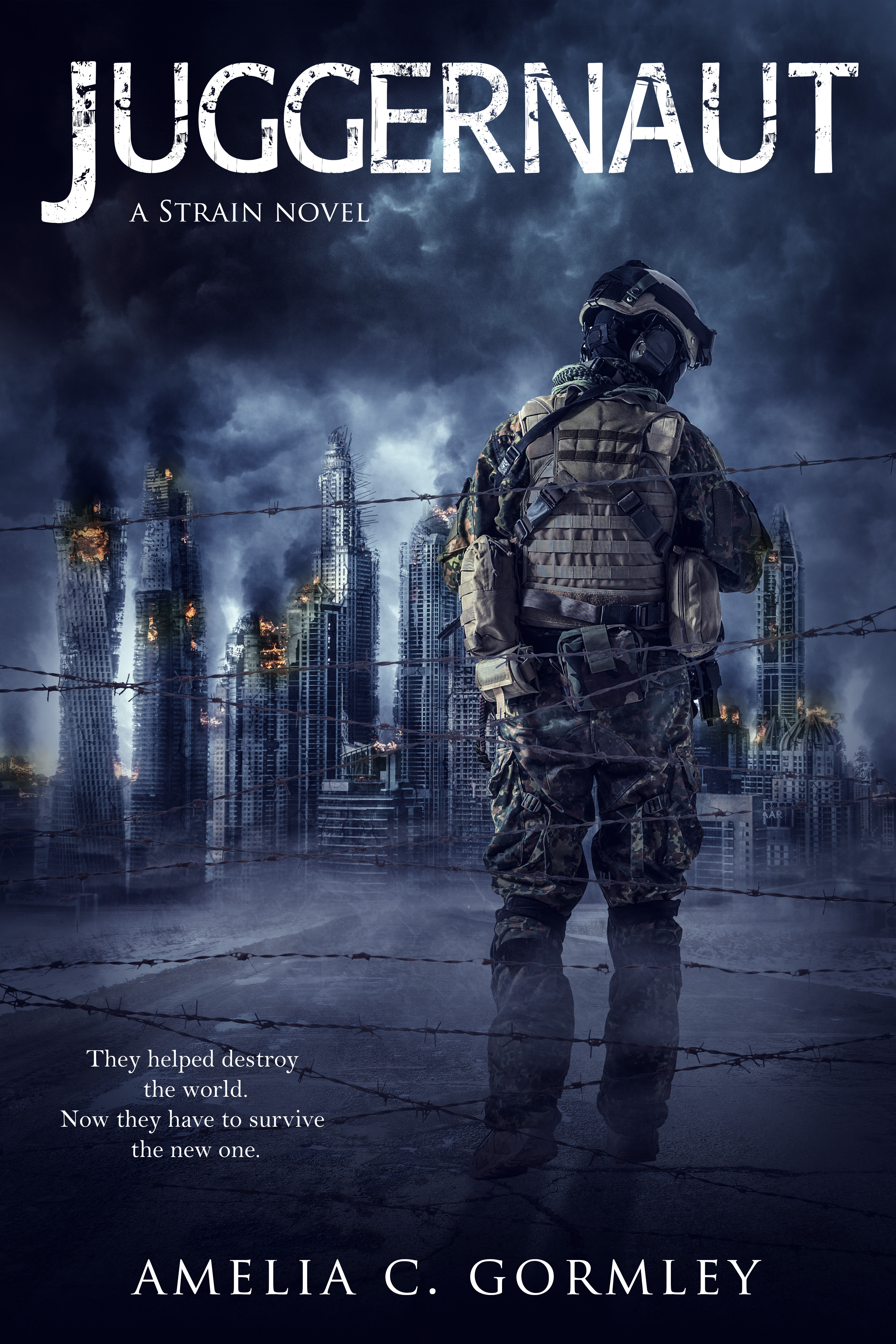
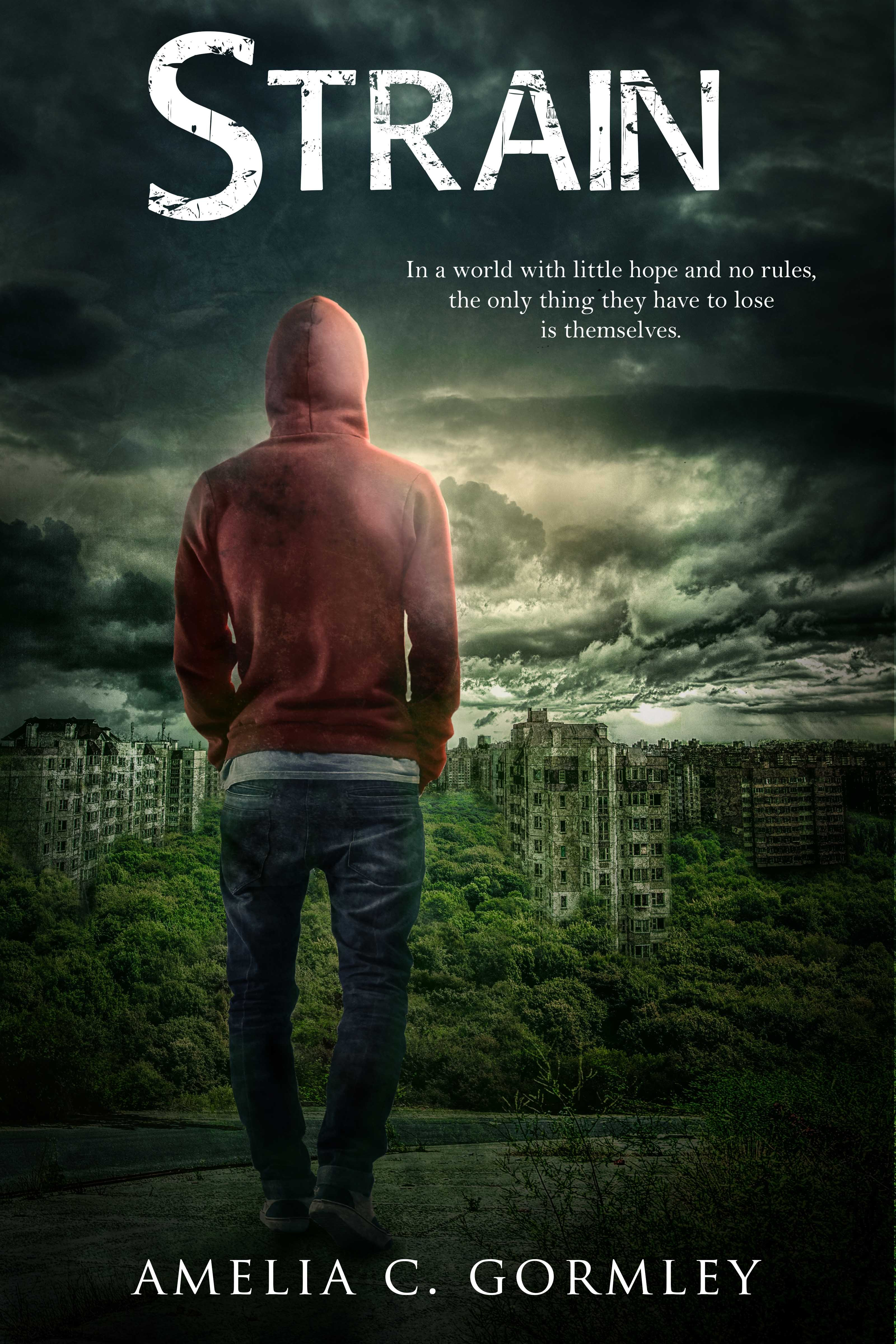
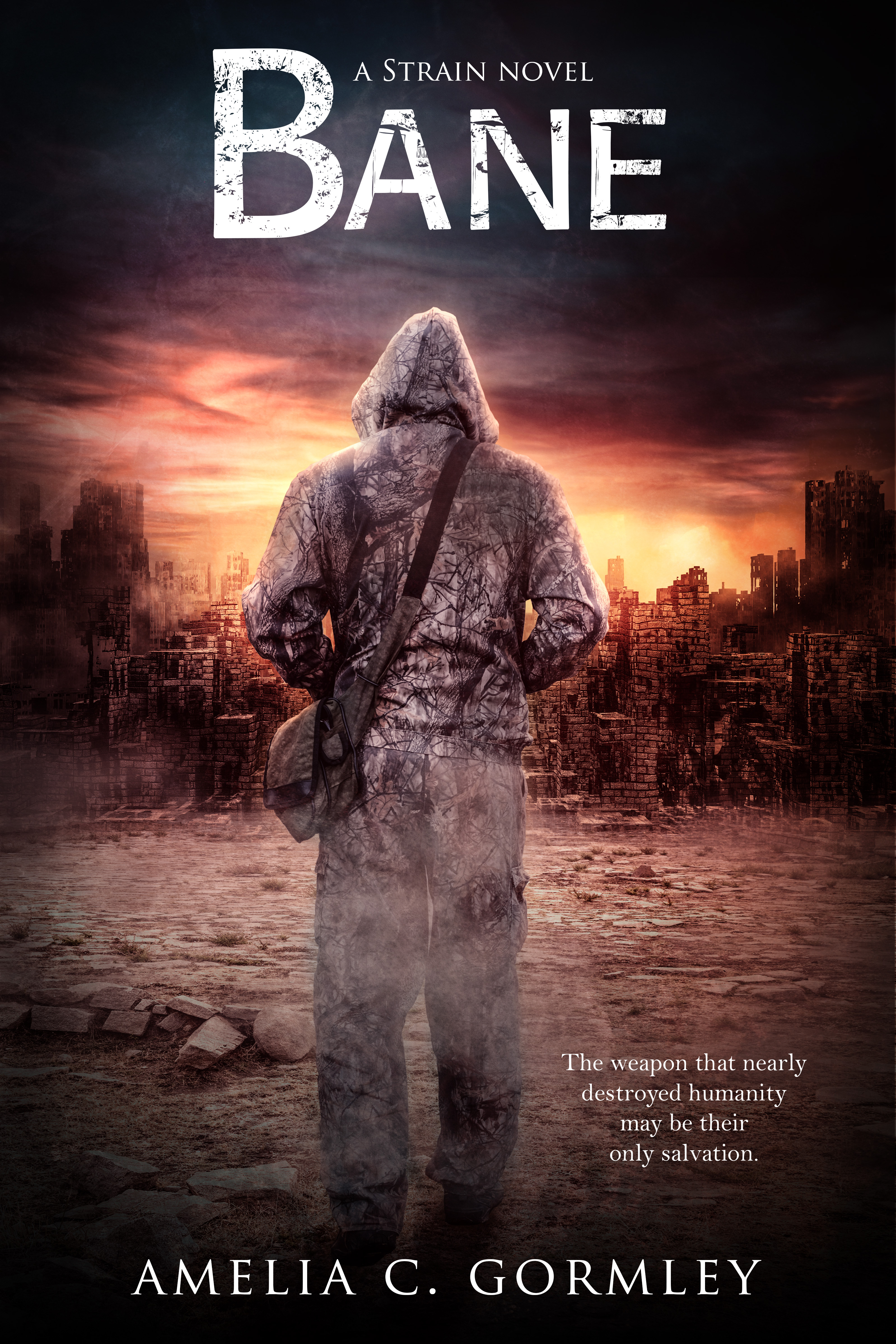
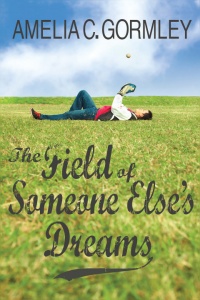
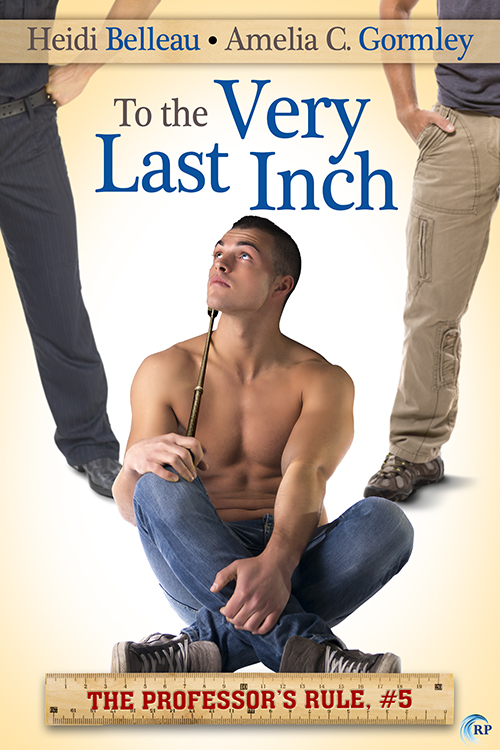
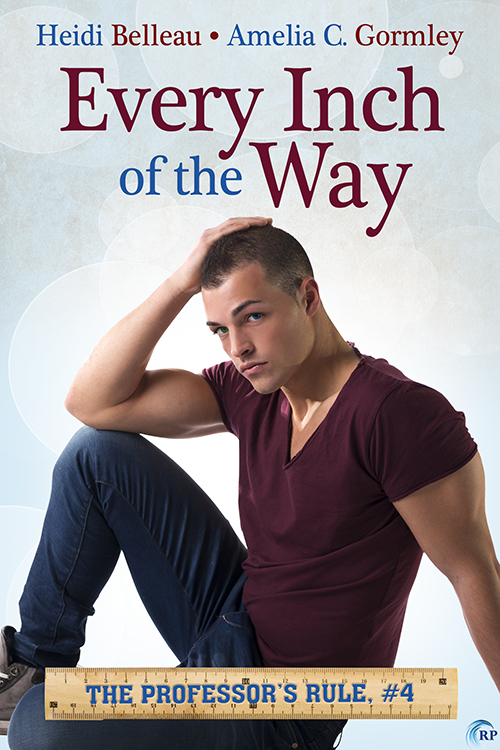
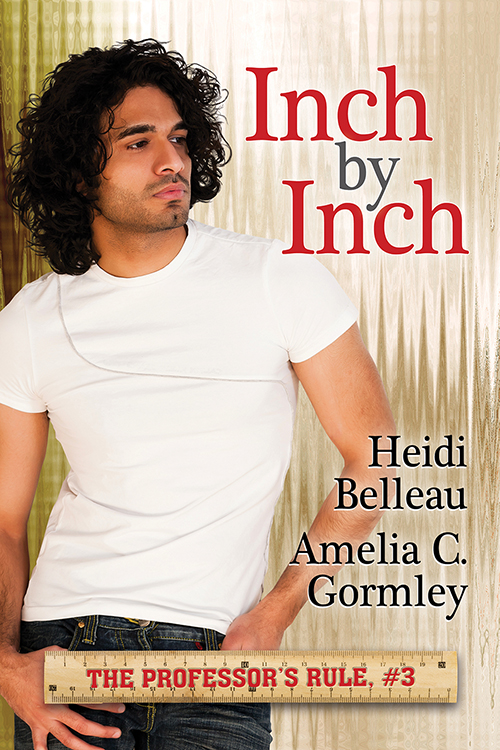
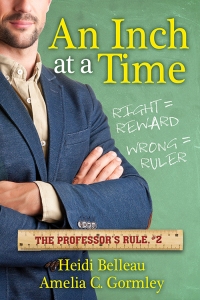
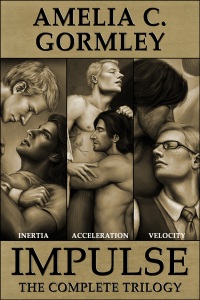
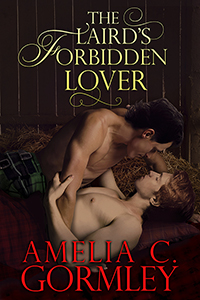
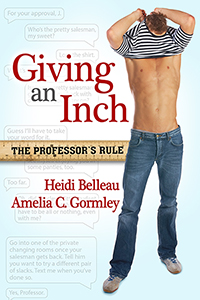
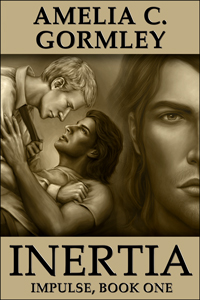
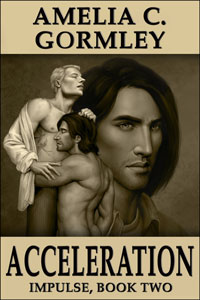
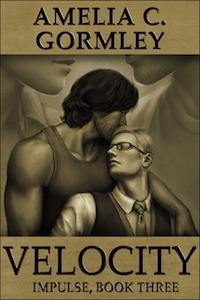

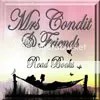


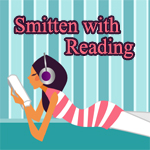
Thank you. I’ve been saying this for a while now. I refuse to put warnings in my books, too, and for the reasons you mention. If someone is too fragile to handle something, it’s up to them to police their reading material, not up to everyone else to do it for them.
Thank you, Theo. It needs to be made clear that I am not at all adverse to making it possible for people who might be legitimately injured by certain material to be forewarned. The problem with tagging/labeling-as-warning is manifold.
The people who might be legitimately injured ultimately need to be responsible for policing their own media (and generally are!) and we should absolutely give them the tools to do so.
However, far more numerous than those who would be legitimately injured are those who will use the excuse that an unknown, anonymous SOMEONE might be injured to essentially blacklist anything they deem questionable using a highly subjective and frequently convenient set of criteria.
The example I cited in very clumsy form on Twitter today was something that happened back during the “authors/publishers are disrespecting readers and reviewers by not warning for het content” brouhaha about a year ago. Someone, I don’t remember who, but honest-to-God this actually happened, claimed that we authors of m/m romance should warn for “het sex” (by which they mean sex involving anyone not cis-male) because she personally found descriptions of female genitalia, and heterosexual intercourse, triggering.
Not rape. Not molestation. Not incest, or extreme violence, or any of that. Just… girl parts. Triggering.
It’s absurd. People use the umbrella of “it might be offensive to some” as an excuse to blacklist what they don’t personally enjoy.
Any labeling, no matter how benign and well-intended on the surface, is a step down a slippery slope toward censorship, where the criteria of the censors are the subjective preferences of a vocal minority.
Well said. I believe they’ve already taken another step toward censorship; the reader complaining of het sex isn’t being triggered, she’s merely trying to force her opinion on everyone else (“I don’t like this, so you [the author] should warn everyone about it.”) Everyone thinks they’re the center of the universe these days, and it’s pissing me off.
You’ve hit upon the point I was trying to make and probably didn’t make as clearly as I wished to because I got a little lost in my own hyperbole.
People claim labeling and content warnings aren’t censorship, they’re simply giving people the tools to choose. And yes, in a perfect world, that would be the case. But this is not a perfect world
Censorship doesn’t start with pulling books off library shelves and throwing them on the bonfire. That’s the end result.
Where censorship starts is with the people who make the labels. The people who designate themselves gatekeepers and arbiters of what content is acceptable and what content isn’t. THOSE are the people who pull the books off the library shelves and toss them on the bonfire. Those are the people we have to be wary of.
Those people are particularly insidious, because their desire to throw content labels on things always seems so benign. They’re just looking out for the greater good. They just want to protect people who might be disturbed by offensive content. Sounds lovely, doesn’t it? Shouldn’t we all be so conscientious?
Except that when you scratch the surface, things aren’t nearly as benign as they seem. That person who is only looking out for the greater good almost always defines the “greater good” in terms of their own prejudices. The gatekeepers are biased, and influenced by a lot of sick societal scaffolding, and the content they designate themselves to filter gets filtered according to those biases. (Which is why, courtesy of that notable gatekeeper the MPAA, you can watch a woman being raped in a PG-13 movie, but if she receives oral sex and orgasms, the movie is NC-17.)
This rant wasn’t born from recent events. I’ve been dealing with this particular issue for going on 20 years now. I was one of the first authors writing BDSM fic in one of the first fandoms to have an internet presence in the late 90s. I have a long and bloody history battling pearl-clutching hysterics who have the ego necessary to delude themselves that the common masses are unfit to filter their own content and therefore must be protected.
Over two decades, now, I’ve fought battles not to have my stories taken down by people who universally believe BDSM to be abuse, by people who disapprove because a character’s reaction to a traumatic situation doesn’t match their ignorant and uneducated assumptions of how someone should react and therefore decided the subject matter was being mishandled, and by people who simply wanted the power to say “this is okay, and that is not” based on nothing more than their own biases.
The embittered fan who believes the new character or pairing on her favorite show is so awful that anyone writing stories about him needs to be banned from the most popular archive? The woman who claims female anatomy and m/f sex are triggering and therefore everyone needs to be warned about it? The Arbiter of All That Is Good and Right in BDSM who thinks that anyone who portrays BDSM in any way which doesn’t meet with her approval needs shut down? The herd of “concerned citizens” who stampede down the chutes, not actually knowing what they’re talking about because they haven’t examined the material they claim to be concerned with themselves, they just know someone is up in arms and being vocal so, darnit, they’d better add their voices to the chorus?
All those people would make themselves gatekeepers. They’re the new generation of Tipper Gores leading a brigade of outraged mothers to war against the recording industry for daring to produce music which features subjects such as masturbation. They would demand filters on content based upon their personal biases in ways that would-hypothetically-“protect” the masses, but which ultimately simply serve to make inaccessible the things that make them personally unhappy or uncomfortable.
That is a dangerous, dangerous license to give someone.
So, yeah, let’s make this clear. I’m not opposed to providing the tools necessary for people who might be legitimately injured by certain content to avoid it. I’m fine with that. All for it, in fact. Do I think it should happen in the books themselves? No, because my point about the fact that it is not a publishing industry standard and looks amateurish remains. It simply does. Making the information accessible elsewhere, however, for those who care enough to do their homework? By all means.
BUT, before we do, we need to ask ourselves: who is in control of that labeling system, and what is their objective? Okay, for books A, B, and C, it’s a well-intentioned publisher who simply wants to give fair warning to readers who might be traumatized by certain materials. Excellent. That sounds lovely. I would support that.
But what about books X, Y, and Z, whose labels are being dictated by public outcry based on misinformation coming from someone with a far less fair-minded agenda based not on what is best for the public, but their own personal preferences? What happens when those books get suppressed by filters and buried so deep in the ghetto that they might as well have been pitched onto the bonfire? And what happens when the biased and vocal few demand the right to dictate the labels pasted on the aforementioned books A, B, and C?
This is where censorship begins. Not with book burning. But with the people carrying the torches. Because no matter how much they try to pretty up their crusade, they are not benign. Ever.
Reblogged this on Theo Fenraven.
I strongly suspect this idea of tagging/warning for content stems from the prevalence of the same in fandoms-and in that venue, authors are eviscerated for not warning for triggers or disturbing content. And I’ll be honest, there are things I would rather not stumble across in my reading. Because of my job, I have a tough time reading or watching anything where the dog dies. My bugaboo, no one else’s. If I’m that worried about it, however, I get someone else to vet the story/movie/whatever for me. I don’t expect the author to post big warning signs: Not for the tender-hearted! (Though I admit, it makes me grind my teeth when a fictitious animal is killed simply to put the emotional screws to the reader)
But there’s a big difference between reading (and writing) fanfic and reading or writing original fiction. I do think that we’d be better served as readers and writers both if we could all remember that. What is appropriate, and even to a certain degree desirable, in fandom doesn’t apply to fiction as a whole. That applies to grown-up storytelling as well.
Exactly one of my points. Mainstream publishers have never put labels on their books warning for content. Why should independent presses?
You are awesome! I absolutely agree with everything you say here & love that you said it! Content warnings for books seem like a bizarre form of political correctness to me. I’m sure you are right about this having it’s roots in fan-fiction. But I also think it goes beyond books & reading, I think it is part of a pervasive attitude, an expectation that people are to be protected from anything & everything that might be potentially “unpleasant” in life. Which, apparently, includes a right to never be offended, i.e., exposed to any thoughts, beliefs, ideas, or anything, basically, with which one does not agree, or which might prove shocking, frightening or otherwise strong-emotion-inducing. But the thing is, to me, unless you are writing the most bland little-kid pablum, any book worth reading is going to have content in it that could earn one of these warnings, so . . .
I recognize that some people might be legitimately traumatized by references to rape, suicide, incest, etc. Which is why Riptide has their warnings page. Which is why I made my post about the content of Strain.
But I wouldn’t insult those people by implying that they are incapable of doing their own research and judging for themselves what they can and can’t handle. The Content Police, however, are apparently perfectly okay with infantilizing people who deal with triggers and traumatic issues by assuming responsibility for filtering their content for them.
Personally? If someone behaved that way and claimed it were for my benefit? I would find it condescending in the extreme and I would tell them where they could shove their concern trolling.
I agree. Fandom is fandom, pro is pro, and the whole point of the tags was more so people could find what they DID want to read (here I’m quoting a former admin at Adultfanfiction.net) than so they could avoid what they didn’t. That was the point of tagging at Amazon, until the system got hijacked as an opinion delivery device.
Fandom is fandom, pro is pro, and the whole point of the tags was more so people could find what they DID want to read (here I’m quoting a former admin at Adultfanfiction.net) than so they could avoid what they didn’t.
You know, that’s an excellent point-I hadn’t thought of it in quite those terms, but that makes a lot of sense as to why tagging works in that manner.
Yes! By all means, use tags to help people find what they want to read. And trust the people who DON’T want to read it to have the basic competence to perform their own due diligence.
Tagging, labeling, etc, should NEVER be used for exclusionary purposes. That way lies blacklists and bans and an overall chilling effect on free expression.
Why? Because no one wants to be blacklisted, in whatever form it might take place. So they start self-censoring their content in order to avoid it.
Maybe too few people in our genre are old enough to remember Tipper Gore’s crusade against music lyrics and trying to force censoring on the record industry? Is that the problem? Have people just forgotten what happens when a determined minority start using their own subjective preferences, along with a healthy dose of concern trolling, to filter “objectionable” content for the masses?
The people who would be legitimately injured by exposure to certain ideas are far less numerous than the people who are egotistical and power-hungry enough to attempt to use someone’s hypothetical discomfiture as an excuse to enforce restrictions conveniently suited to their own biases.
Pingback: Links: Saturday, April 12th | Love in the Margins
I couldn’t disagree with your post more strongly. Content tags help me find books I like and avoid books I do not. I like them. I am neither a fragile flower nor a member of the content police. Tags and labels help me all the time to identify books I might like. And if it’s tagged romance and doesn’t have a HEA/HFN I get stabby and I don’t trust that author again. If I know going in what to expect, I will either not choose that book (which saves my time and angst, the author a negative review and means I may try his/her work again) or I will adjust my expectations. I don’t find it unprofessional. I think it’s good customer service.
I certainly respect that not everyone is going to share my opinion, and I’m beyond thrilled to have an open and friendly dialogue about the issue. In this case, however, I think perhaps the point I was trying to make didn’t come across.
As I’ve remarked in other comments here and elsewhere, I’m more than happy to find a system that would provide the necessary tools for readers such as yourself-who wish to choose for themselves what content they are exposed to, either because they need to avoid certain content or because they simply don’t like it. I think that is perfectly reasonable. I think Riptide’s tagging features are fabulous, and as you can see, a couple months ago I made a post about one of my own books in order to provide just those sorts of tools to readers.
Now, there are issues facing the implementation of such a system-namely that a great many content warnings in blurbs and/or in the books themselves will result in books with such warnings being removed by Amazon, which makes it much, much harder to sell books. This is a big problem with Amazon, but they’re where the majority of sales take place so it’s not like we can just ditch them, you know? If they ever implement a reasonable system (I’m not holding my breath) by which books can be tagged for certain content WITHOUT those books being targeted for removal, that would be terrific. I would support that.
At this point, there doesn’t exist a way to implement any sort of tagging of this nature on the major e-tailer sites without getting the book effectively blacklisted and removed from sale.
(I will admit, yes, I do find the sight of a content warning in a blurb or on the cover/back cover of a book to be unprofessional, but that’s purely subjective and I admit it. I think it comes from me being a bit old school. I still base my expectations of what a “professional” book and blurb look like on what I would see in a bookstore from a Big 5 publisher. But that’s not my major objection.)
My MAIN objection-and this probably got a little lost in hyperbole because I was amusing myself with my cavewoman metaphor-is that any sort of tagging/labeling-for-content system needs to be viewed with extreme caution. Already, we know e-tailers will yank books that are tagged with certain warnings. That’s bad enough. What’s worse is that there is a vocal minority of readers demanding labels on books for issues which boil down to personal biases.
An example I have already cited a couple times was one person who completely inappropriately co-opted the claim of PTSD and anxiety triggers to justify demanding that books with sex content involving female-bodied persons be labeled. Hand to God, someone actually claimed that female anatomy and m/f sex were traumatic for her. She’s equating the presence of breasts and vaginas in a book with the presence rape and incest and suicide.
Then there are people demanding warnings on books for content that isn’t even in the book, because one reader subjectively, incorrectly, (or perhaps even deliberately) says the content is in there when it’s not. An example would be a book that came out not long ago with an enema scene in it. The scene wasn’t scat. It didn’t sexualize any sort of play with bodily wastes. While it dealt with some psychological domination as a prelude TO sex, it was not sexual and wasn’t meant to be. Yet a few readers took exception and started howling that they should have been warned for scat content.
So, on the most benign level, we have to deal with the fact that how content is interpreted is subjective. What one person considers dub-con, another might insist is hands-down rape. So, what do we do when, despite a publisher’s best efforts to provide reasonable tagging, readers start demanding warnings for things that aren’t actually in the book? How does the book then get labeled or tagged?
Then there are far less benign situations. What about the people who just hate BDSM and consider it to be abuse? Who, like the gynophobic reader cited above, want content and any mention of it suppressed simply because they don’t like it?
This past week, an author made a book recommendation on Facebook. A few days later, he made another post referring to people giving him flack for making that recommendation. Apparently, as an author whose voice might carry a little further than a non-author’s, he has an obligation not to recommend something that someone else might find objectionable. (This was the incident which prompted me to compose the rant to which you replied, because it really is beyond the pale.)
Bad enough, someone demanding incorrect labels based on purely subjective and/or misleading information about books they haven’t even read. But to demand another reader remain silent and not even speak about or recommend such a book?
Let me ask you: as a reader who wants the proper tools to choose the content she wants and the content she wishes to avoid, don’t you feel at all insulted or troubled that someone else would try to suppress a voice which might help you make your decision?
This is what I mean when I talk about the infantalization of the reader. I’m not saying that content labels and tags infantilize readers, I’m saying a vocal minority of the people demanding tags and labels can and sometimes DO. Like the gynophobic reader who believes all readers need to be warned away from “triggering” content like m/f sex and equate female anatomy to depictions of rape and abuse. Like the anti-BDSM readers who believe all other readers need to be warned away from “abuse,” or even the self-styled BDSM authority who wants all other readers warned away from anything he or she considers to be “incorrect” BDSM, or who wants what he or she considers “incorrect” to be labeled as abuse or rape rather than BDSM.
Do you want those people filtering your content for you? Because that is what they want to do. They don’t want YOU to have the tools to make your own choices. They want to suppress the content to the point where you can’t choose, because you can’t even find it or information on it.
Back in the 80s, Tipper Gore went on a crusade against the music industry? Why? Because she and her child were listening to “Let’s Get Crazy” off the Purple Rain soundtrack by Prince and then came across “Darling Nicki”, a song which deals with sex and masturbation. She wanted music to be rated by an authority such as the MPAA. to make it impossible for minors to buy music with lyrics that might contain adult subject matter. But who would have staffed that authority, and what would their criteria have been? Because if it HAD been anything like the MPAA, it would have been a disaster. After all, the MPAA is the agency which thinks it’s hunky-dory for a 13 year old to see a woman being raped but God forbid anyone under 18 should see a woman having an orgasm.
Would you have wanted such an authority telling you which music you could and couldn’t buy? Luckily, it didn’t happen. Instead, the recording industry started voluntarily self-labeling for explicit lyrics and it turned out fine. People had the tools to make informed decisions without censorship. Excellent.
So. That is what troubles me about the demand for content labeling. Not people such as yourself, who simply want readers to have the tools to make their own informed decisions, but the people who would USE readers such as yourself as a convenient excuse to suppress content based on their personal, subjective, and sometimes very flawed agendas.
So, we need to tread very, very carefully before we start plastering labels on books. Who is deciding which books are getting which labels, what criteria are they basing those labels upon, and what is their agenda?
Thank you so much for stopping by and commenting. I really do appreciate the opportunity to have a dialogue about this that includes differing opinions.
I think Riptide’s tagging system is a good one. I realise there are issues with Amazon - I don’t think doing something that will ban an otherwise saleable book from sale helps readers either.
There are always going to be a small and possibly vocal minority who want to spoil things for others. That’s nothing new and I don’t see it ever going away. But I’d rather take the pruning shears to the issue than the napalm.
From your comment to me, your objections are about censorship and directed to a vocal minority who would like to see certain books/tropes banned. They’re different things IMO, but that can be easily lost in the hyperbole.
I don’t think content tags/warnings are inherently wrong. As with most things, it is a matter of degree. Nobody can please everybody all the time. But (because I’m on a cliche roll, let’s go for another shall we?) let’s not throw the baby out with the bathwater when discussing the issue.
I agree with Kaetrin. As someone who is on a set budget for buying books, content tags are helpful especially if there are not a lot of reviews of the book by reviewers I know. From the financial side of things I just can’t buy every book that catches my eye. Also who decides on a legitimate injury, you? I think that should be the readers choice hence content tags.
I am neither a fragile flower nor do I have anything near a saviour complex, I merely use today’s technology and resources to make my reading experience enjoyable.
I think if you read my response to Kaetrin, you might find that what you want and what I want aren’t all that different. I just am a little more wary of the ways the system could be misused.
Thanks so much for stopping by and commenting. As I said to Kaetrin, I’m more than happy to have an open and friendly dialogue about the issue.
“How dare they assume that I, or any other person intelligent, educated, and motivated enough to pick up a book and read, need to be protected from anything, for any reason, much less protected by them? ”
I’m confused. Your initial post is all about content warnings being condescending to the reader, and yet your answers to people like Kaetrin are all about whether your books get delisted at Amazon. You’re arguing out of both sides of your mouth on this one.
I’ve experienced the triggering thing through careless authors (and in this case, a careless recommender of a fanfic, making out it was hilarious, when the first page contained a not at all funny full on child rape scene). I’m not in sympathy with the kind of person who wants serious warnings about the cutting of a certain character’s hair (a real example from Sentinel fandom), or of m/m readers who want to be told there’s a surprise vagina in the novel. But I’m also a fan of not making my readers read things that might make them literally throw up or suffer flashbacks.
Given that triggers are highly specific, and that people who are triggered by certain things already police their reading quite intensely by asking other people who’ve read the book to let them know about specific issues, as authors, we should be concerned about giving general content *notes* (not warnings per se) that gives a reader a heads up as to whether they might want to investigate further. So yeah, I tell people if there’s BDSM, rape, abuse or extreme violence, but not the specifics because that’s enough. Also, if the BDSM practices are extreme (such as scat) it’s a good idea in my opinion to mention it, because there are readers *looking* for specific kinks, and your notes can act as advertising. This is a point frequently made in fandom, so I’m sure you’re familiar with it.
As for getting your books pulled form Amazon, all I can say is that I’ve written some pretty ‘out there’ stuff and nothing’s been yanked yet. However, this is a separate issue from whether we exercise a bit of care towards our readers (unless your name is STEPHEN KING and so that in itself is enough of a warning). If all you care about is whether your books aren’t delisted, then put a flower on the cover and rainbows and puppies in the description - although I think that’s more likely to trigger complaints by shocked readers than from those who are clear going in what they’re after.
“I’m a professional author and I will handle my books as a professional author would.”
Professional writers - as script writers - have warnings slapped on their work all the time. Content notes are appropriate in a world where ebooks don’t let you riffle through the entire thing to see if someone you care about dies on the last page or is maimed, or tied up and branded. It’s not an issue of professionalism - it’s an issue of being a considerate performer.
I think there’s a slight problem with the people you are using as an example. Stephen King’s and Anne Rice’s works fall into the horror/gothic genre and V.C. Andrews is also gothic fiction. By the nature of the genres they write in they have content warnings. No-one picks up a horror or gothic novel expecting sunshine and daisies.
When people pick up a romance novel, which seems to be the genre you market yourself into, they don’t expect horrific things. Romance novels are about the warm fuzzies and the sexy. Readers may expect the main characters to be tested but not in awful, horrible almost unrecoverable from ways because that kills the mood and therefore the purpose of reading the novel in the first place. If you have content in romance novels that kind of defeats the purpose of reading a romance novel then perhaps you should place a warning label on it.
I kind of hate that genres have these black and white expectations. The most well-known love story of all ends in tragedy. Imagine if Shakespeare had been limited by these strict expectations of genre when he wrote Romeo and Juliet.
I considered putting a language warning on my books until an Amazon reviewer did it for me. Then I realized how unnecessary these labels are in the book description. As a reader, I’ve been going to the one-star reviews for years to make sure the book doesn’t contain certain subjects I don’t want to read. Why can’t people just continue to do this? Why cheese up the book description with endless tags and labels and warnings? It just seems to take the magic out of it, somehow.
One commenter said she gets “stabby” when a book is marked Romance and doesn’t have a happy ending. That she’ll never trust that author again. Well, that’s how it works, isn’t it? That author is not a good fit for that reader. She might be out a few bucks and the time it took for her to realize it wasn’t the book for her, but that’s all it is. It’s just a test drive. It’s like anything. A flavor of gum you’ve never tried. A movie you’re not sure you’ll like. You could like it. So you buy more of it. You could hate it. So you don’t buy it again.
These rigid expectations, I dunno. Just don’t seem to work for me. And content advisories on books are already there in the reviews. And so many authors are accessible via email, Twitter, Facebook, etc. If a reader wants to try a new author but only reads HEA Romance, why not send the author an email and ask?
That commenter would be me. And, by the way, Romeo and Juliet is not a romance. It is a tragedy.
Genre romance has a happy/satisfying/optimistic ending in terms of the the main relationship - otherwise it’s not genre romance. (See RWA’s definition for more information).
Most genre has black and white expectations. That’s the very definition of genre. That’s *why* people read genre - because they know, broadly, what they’re going to get - this is true for crime, thriller, horror, SFF as well as romance.
I’m so happy to hear that you don’t care whether I’m out a few bucks, whether I have a bad reading experience, that you think I should go to the trouble of emailing the author (and hoping for a response before I forget the book exists) every single time I buy a book. That’s good for me to know. I appreciate the warning.
“I kind of hate that genres have these black and white expectations.”
No one is forced to write genre fiction. If you do, though, there are rules readers expect you to follow.
Contacting every author one might consider reading is impractical. All that happens is that readers get gunshy and stick with tried and trusted readers. Where does that leave new authors?
If you think the expectation of a HEA is unique to Kaetrin, I think you know nothing about the Romance genre.
“These rigid expectations, I dunno. Just don’t seem to work for me.”
Then write something else. You’re not Marcel Duchamp. You don’t have to scrawl “Ceci n’est pas un roman d’amour’ on your books - just don’t market them in a genre which has those ‘rigid expectations’ you hate so much.
Not seeing a lot of respect for reader comfort or desires in this discussion. Very sad.
The fact is, there are certain things I will not read. They are hard lines for me. If I come across them in books, I’m done. Yeah, sure I’m out a few bucks but you know what, I’d rather not be,thanks all the same. I’d rather be spending that money elsewhere.
Don’t movies have labels? and as for gum, well here’s the thing. I’m not a fan of anything cherry flavoured so gum labelled cherry Im not buying.
I have not seen anyone asking for “endless tags, warnings and labels” just some consideration, that’s it. Don’t think that is too much to ask.
And no, I won’t be emailing authors, that is not something I want to do.
That’s my bad. I shouldn’t comment and mix my reader point of view with my writer point of view. Things get muddled.
Because as a reader I feel stifled by these black and white genres. As a reader, I’d love to read a Romance with a bittersweet ending. As a reader, I’d love to see a new genre Romance Without Rules where the plot is driven by a love story but it’s not so formulaic. As a reader, I read the reviews of books by authors I’ve never read, making sure they don’t contain graphic rape or graphic child abuse (two things I prefer not to read). As a reader, if I decide to try something new I’m not sure I’ll like, when/if it turns sour I’m okay with losing the few bucks it took for the risk. It’s a risk I’m willing to take, as a reader, to be exposed to new things I might love. (Or I use ereaderiq and just wait for it to go on free promo, gosh I love that site).
As a writer, I’m with Amelia on the content warning thing. It just looks amateur and unprofessional and a bit cheesy. Anne Rice and Stephen King don’t do it. Yeah, most readers know what they’re getting into by the name alone, but some people don’t. They were shelved in General Fiction in the bookstore I worked in.
Of COURSE writers care if someone buys a book and hates it or finds something offensive when they expected not to. It’s like hearing someone say your baby is ugly. I’d love to pay back the reader who was offended by the F bomb, even though that review popped up right after a free promo but still. That was my first thought. Writers are not out to swindle people out of their hard earned cash. Writers are out to share what’s in their heads with others. There are much easier ways to make money and most writers have day jobs.
Maybe writers shouldn’t comment on reader issues even though all writers are readers and were probably readers long before they were writers. Dual citizenship is not allowed. Or maybe it *is* allowed, just not dual voting rights…? 🙂
First off, to all of you who have been replying in the past couple days, forgive my lack of responsiveness. I’m leaving in the wee-small hours for RainbowCon tomorrow so I’ve been busy packing and making sure my family has everything they need for my absence. And in that vein, it should be noted that this will probably be my last response on the subject, as I won’t have time to keep up with comments while I’m at the convention.
I’m going to tackle multiple responses in this one comment.
No, my answers haven’t been ‘all about’ getting the book de-listed. That is ONE of the many (many, MANY) facets of the issue which I have discussed. I think we can all agree that a book that is basically buried in obscurity because it’s not available on the most frequented book e-tailer does no one any good, so it’s an issue that affects both readers (at least the ones who want to seek out that content) and authors.
I’m definitely not, either. I think I’ve made it very clear in multiple places that I am all in favor of making sure that the readers have the tools they need to filter their own content with the barest modicum of due diligence on their part (in the case of my book Strain, it’s right there in the reviews on Amazon that there is dub-con and subject matter people might find disturbing. It’s also in many reviews on Goodreads and on book review blogs, and in the tags on Riptide’s website, and in a post that I made and published not only here, but at Goodreads and in the Riptide newsletter. We made every effort to make sure the readers had the tools they needed to make an informed decision as long as that reader put in the smallest and-in my opinion-reasonable amount of effort to seek those tools out.
Yes, I am. And that is the issue here. Me and my editor agreed upon what tags would be appropriate. The problem is that people are spreading false information about the book (I’ve heard from another author of someone claiming that Rhys said he would rather die [than have the sex required of him to live] multiple times, when in fact he said the exact opposite, though I’m not certain where that claim is being made) or because their definition of rape in fiction differs from a lot of other people’s, including the author’s and the editor’s. Those people would say the book should have a rape warning, instead of dub-con.
This is, again, what I mean when I speak of the infantilization of the reader.
Let’s say (hypothetically, since I have no idea what your preferences are) you’re a reader who finds enema scenes hot, but freak out at the idea of scat play? I’ve seen people demand scat warnings for enema scenes, basically insisting that the author/publisher turn off potential readers because they INCORRECTLY define enemas as scat.
Or let’s say you’re a reader who is okay with dub-con tropes (sex-pollen, fuck-or-die, gray-area type stuff, etc) but not with rape. So you might take a chance on a book with a dub-con rating-understanding (because you’re an informed and reasonable person) that your barometer may differ from someone else’s) but you would not read one with a rape tag because you get triggered.
Now, Heidi Belleau made a rather brilliant point in a post she made not long ago that what would be absolutely and appropriately considered rape in real life can and is distinguished differently in fiction. She has three and distinct categories, which I think are terrific: dub-con, non-con, and rapefic. Some people only have dub-con and non-con, but Heidi differentiates between them based, I believe, on the level of violence and how eroticized the violence is. Let’s say this hypothetical you subscribes to this sort of thinking.
So basically, people who want a book tagged for rape are defining it the way any reasonable person would in *real-life*, rather than in fiction. Now, it’s certainly their prerogative to use as rigid a definition of the matter as they want to *for their own purposes*. But to force that definition on YOU, as a (hypothetical) reader who uses a different definition, a reader who would be okay with dub-con (or even non-con with extenuating circumstances, which is a line that Strain tip-toes) but not with rapefic? Would you find that acceptable?
If we were to give in to the demand for big bold rapefic warning, the hypothetical you, who would actually be fine with the book, is turned away. Thus, the choice is *taken away* from you to read based upon a lack of distinction made by someone who defines the issue differently.
But here’s the kicker: the people who might definite the matter differently? Are using YOU as their justification for demanding the rapefic label. “Someone-like-Ann might be triggered,” they argue, even though they have no idea what your triggers are. They’re using yours trigger-a trigger they don’t even share, so they’re basically appropriating it-as a reason to deny you the accurate tools necessary to make your own judgments. They are assuming they know better than you what you might find triggering. They are taking away your ability to make an informed decision based on their own set of standards.
Now, even though I’m speaking of a hypothetical version of yourself, let me make it clear that this situation is not purely hypothetical. It’s absolutely real. It happens. It has happened in every medium I’ve ever written in over the course of decades (though the addition of the trigger issue is recent.) I’m not just spinning an imaginary worst-case what-if. This CAN and DOES happen.
I respect readers enough to trust them to be able to make their own informed decisions based upon their own sets of unique standards. The people demanding rigid labeling based on the most alarmist and conservative interpretation don’t. And when they invoke someone’s legitimate psychological and emotional well-being as their reason for it, It becomes concern trolling. As a reader? I find the idea of someone doing that to me very belittling.
I’m not saying readers are fragile for expecting accurate labeling. I’m saying the people insisting that their definition is the only correct one and demanding inaccurate, or at least imprecise, labels based upon that definition are TREATING readers as fragile.
They don’t respect readers. That is (a part) of what the rant was about, though what finally pushed me into posting it was something else entirely. What finally pushed me into posting it was that another author was told he shouldn’t speak of or recommend my book, and for the same reasons inaccurate labels are being demanded. Not only do these people want the book labeled incorrectly (or at least in ways that don’t allow for a very nuanced interpretation of the text) they want to silence anyone who might make a recommendation that recognizes those nuances, thus denying other readers yet another means of making their own informed choice.
Some of my books are romances, Strain, as well some of the other stuff I’ve written over the decades, is not. Yes, it has romantic elements, and in the end the main pair get a HFN ending so it definitely has romantic elements, but then it is also very clearly established that it is post-apocalyptic and dystopian. So no, I’m not speaking of romances. I almost certainly would not have dealt with the content I dealt with in Strain had it been a pure romance. Really, it’s more on par with Laurell K. Hamilton’s book (which are urban fantasy with romantic elements) or Jacqueline Carey’s (which is alternate real-world history-based fantasy with erotic and romantic elements.)
I think a well-crafted blurb *should* cover most bases. In the case of Strain, the blurb makes it clear Rhys is in a fuck-or-die situation and that he feels “degradation” about “submitting to an entire squadron of soldiers.” Honestly, even without tags, or reviews, or my post about the content, I don’t think any reasonable reader could look at that blurb and not have some approximate idea of what they’re getting into,. That was a very deliberate choice between me and my editor. That information needed to be conveyed in the blurb, so we crafted it to do just that.
This is a very valid point, though I think at least part of the problem where m/m fiction is concerned is that all those sub-genres-thriller, horror, SFF, etc-get lumped in under the umbrella of m/m romance. I’m not sure it’s reasonable, considering that this is the case, for readers to automatically assume a m/m book is “pure” romance just because it’s an m/m book.
Well, I think I’ve explained a few times in this discussion that it is exactly my respect for the readers that enables me to trust them to make their own informed decisions with the tools provided. Accurate blurbs, reviews, tags on the publisher’s site, even a long letter posted by moi explaining what the book was about in greater detail. Any motivated reader can find the information easily. They don’t have to dig deep for it. Just a couple clicks and it’s all there. I think the disrespect lies with the concern trolls who don’t trust the readers to be able to make decisions on nuanced subjects and therefore demand un-nuanced labels.
No, the problem is just the opposite. People are demanding labels based on rigid definitions of areas that not all people define by such rigid standards, thus taking away choices that rightly should be available to the latter group. I don’t think I could fairly be called lacking in consideration. I not only crafted a blurb that gives fair warning, and Riptide not only provided the appropriate tags on their site, but I went a step farther by making and disseminating a special post on the subject. Is it too much to ask for me to have done those things? No. I did them gladly. Is it too much to ask for me to tag my book inaccurately based on someone else’s more rigid standards? Yes. That is too much to ask. I won’t do it.
I’m usually pretty good about not engaging. As a writer, you take your lumps when someone doesn’t like what you’ve written. I was fine doing that, and as I’ve said before, I probably would have remained mum on this issue if I hadn’t been pushed a little too far by learning that someone or someone’s was trying to silence an author for sharing their opinion and recommending the book. That just really was beyond the pale.
“I probably would have remained mum on this issue if I hadn’t been pushed a little too far by learning that someone or someone’s was trying to silence an author for sharing their opinion and recommending the book. ”
Ms Gormley, it sounds like your friend made a basic mistake in assuming he/she could switch author/reader hats and jump into a reader conversation as a reader, forgetting that they aren’t likely to be treated as one. That’s one price of becoming an author. I could say this is the mistake Ms Camden makes too. Dual citizenship as she calls it, isn’t actually ‘allowed’ - or less provocatively, recognised. Authors are authors, even though we read. And given the *immense* amount of abuse readers have copped from badly behaving authors over the last couple of years, it behooves all of us writers to realise that we have to treat extremely lightly in reader fora.
And we should also refrain from laying down the law as to what readers *should* want in terms of warnings, blurbs and so on. Because our viewpoint is tainted by our experience of the other side of the fence - the side of the fence that wants to make loads of money off new readers. We’re not unbiased commenters.
“I’ve seen people demand scat warnings for enema scenes, basically insisting that the author/publisher turn off potential readers because they INCORRECTLY define enemas as scat.”
Look, some people will call that scat and some people won’t. Enema play is considered a somewhat extreme kink, like sounding, fisting and so on. ‘Warning’ - or ‘noting’ which I like better - serves those who don’t like it, and those who do. If you make a content note for exactly what’s in the book - enema play - then you satisfy everyone. How is that a bad thing?
Your extrapolation from your experiences with your book is not serving your argument well. It’s also riling people up. How about you step away from this now and stop acting as the content warnings police?
“Ms Gormley, it sounds like your friend made a basic mistake in assuming he/she could switch author/reader hats and jump into a reader conversation as a reader, forgetting that they aren’t likely to be treated as one.”
No, that is not what happened. What happened is the person in question-whom I’m acquainted with but I don’t think we’s ever had a conversation beyond swapping a comment or two over one another’s blog posts, before now, so I wouldn’t have called him a “friend”-made a status update basically saying “I like this book, and recommend it, though sensitive readers should beware.” It wasn’t in regard to any conversation happening anywhere, or in response to anyone else, it was just him announcing that he was enjoying reading the book. And then a few days later, he made another status update revealing that someone-I have no idea who, but I get the impression there were several-had informed him that he shouldn’t recommend a book he enjoyed.
That’s it. He didn’t jump into any reader conversations. He simply stated, in a status update on his own timeline, that he liked a book. And for that, people tried to silence him.
I’m sorry, but no, that is not acceptable and should not be tolerated. It’s well established that reader reviews and recommendations help them make informed choices, but people are trying to silence even those when they don’t agree with them.
“How about you step away from this now and stop acting as the content warnings police?”
I’m sorry, I thought someone making a comment addressed directly to me on my own blog might expect a response from me. Am I not supposed to answer people who attempt to open a dialogue with me? Is that against the rules, too? How silly of me.
I’m off to my convention. Do feel free to continue using my blog as a message board if that is what it’s meant to be.
May I offer a (small) comparison? I enjoy reading crime/thriller books (via the Big 5 of course), but over the span of many years I have learnt a lesson. Patricia Cornwell and Minette Walters (for example) began their careers by writing good, detailed mysteries, which I enjoyed. Then, perhaps because of a drop in ratings/income (?) or because of our modern-day accepting (?) society, they began to introduce psychological elements which made their books ‘darker’. I am not afraid of ‘dark’ elements at all; I can happily read violent or disturbing scenes when in context; I can go with the blood and gore of a Western shoot-out, or a science fiction space battle (including aliens); I can understand the dynamics of a BDSM relationship, or the need between consenting adults for the SM aspects (even though, yes, there is a great deal of psychology here); but anything now described as a “Psychological Thriller” I avoid like the plague.
This phrase is my trigger. I still haven’t worked out why this is; but I think an element is that if an author can write about the psychology of a killer, then isn’t that author (kind of) imbued with the same instincts? Or maybe they just have an incredible insight into the mind of a killer? (This thought is my preference) 🙂 So, whenever I see a Mainstream book with “Psychological” anywhere, I pass. This is my choice, made with informed decisions, and is purely personal to ME.
Ergo, Amelia, I agree with everything you’ve said. Thank you!
“He didn’t jump into any reader conversations. ”
Okay. And then a ‘someone’ - one someone with an axe to grind - gave him what for. And for that, you’ve written a diatribe which has lost you a *lot* of readers, going by the tweets and comments on GR I’ve read.
Looks like a single troll got a lot of value out of their email.
“I’m sorry, I thought someone making a comment addressed directly to me on my own blog might expect a response from me.”
Unclench, girl. I’m talking about this post, and your comments on Alexis Halls’ blog.
Enjoy your convention. Try to avoid talking to readers like ignorant nincompoops.
Until I can browse an ebook before buying, like I can flick through a print book at a bookshop, I’m all for as many warnings as readers may find useful. I suspect those trigger warnings will attract some readers as much as they will warn some away. Because the other problem authors might want to consider is that without these trigger warnings, readers will just not buy books until someone else has read it and specifically recommends that book. There is zero chance that I’ll look for information on triggers on an author’s website while book shopping. I’ll just pass on the book and find something else. Or I’ll buy the book, get enraged, and tell everyone to stay away from it.
If the issue is Amazon censoring books, that’s on Amazon and authors, not on me as a reader. Listing your book elsewhere is actually a choice if you find Amazon’s practices so horrible. You might take a hit on sales, but again, that’s the author’s choice.
If the issue is that the romance genre should not be so rigid, I would suggest that whoever is saying this does not understand the romance genre or its readers.
If the issue is a handful of readers objecting to a reviewer’s opinion, I’m not sure how we can generalise this to widespread content policing. If the reviewer had felt threatened or harassed, then I agree this is a problem, but it has nothing to do with content tags.
If the issue is that reading should be challenging, well, then you’re telling me, the reader, what I should feel and how I should read. There are many reasons why a reader might want a comfortable read and it is not anyone else’s business why, and nor should she be made to feel less worthy as a reader for doing so. I would also suggest that the quality of writing can make a huge difference in how someone reads problematic themes in fiction, and I find that authors almost never consider this aspect of their books. (And most readers are too kind to bring it up.)
To be honest, I’m still not clear what the issue is.
Pingback: on content warnings & courtesy - quicunquevult.comquicunquevult.com